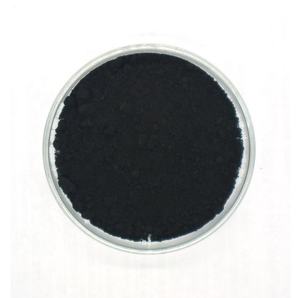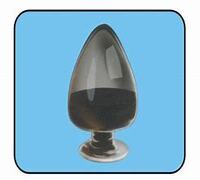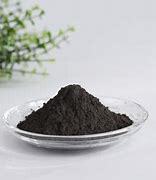Overview of Chromium Carbide Overlay Wear Abrasion Resistant Hard Facing Bimetal Steel Plate
Chromium Carbide (Cr3C2) is a hard, wear-resistant ceramic compound consisting of chromium and carbon atoms. It is a metallic carbide known for its exceptional hardness, high melting point, and excellent corrosion resistance. Chromium carbide is widely utilized in applications where resistance to wear, corrosion, and high temperatures is crucial, making it a vital component in various industrial sectors.
Features of Chromium Carbide Overlay Wear Abrasion Resistant Hard Facing Bimetal Steel Plate
-
High Hardness and Wear Resistance: Chromium carbide has a Vickers hardness of around 1300 Hv, which is significantly higher than most steel alloys, providing excellent resistance to abrasion and wear.
-
High Melting Point: With a melting point exceeding 1890°C, it can maintain its structural integrity and properties in extremely high-temperature environments.
-
Corrosion Resistance: Forms a passive chromium oxide layer when exposed to oxygen, providing inherent corrosion resistance, particularly against oxidation and acidic environments.
-
Thermal Stability: Exhibits good stability at high temperatures, making it suitable for use in high-temperature applications such as heat exchangers and furnace components.
-
Chemical Resistance: Resistant to many chemicals, including acids, except for strong oxidizers like nitric acid.
-
Bonding Enhancer: When added to metal matrix composites or as a coating, it can enhance bonding between the substrate and other materials.

(Chromium Carbide Overlay Wear Abrasion Resistant Hard Facing Bimetal Steel Plate)
Parameters of Chromium Carbide Overlay Wear Abrasion Resistant Hard Facing Bimetal Steel Plate
The Chromium Carbide Overlay Wear Abrasion Resistant Hard Facing Bimetal Steel Plate is a type of plate that has been designed to be resistant to wear and tear caused by abrasive materials such as steel chips or debris. The surface finish of the plate is applied in a chemical process known as carbide overlay, which creates a layer of chromium oxide that can resist。
In terms of the parameter related to the wear resistance of this plate, it may include the hardness of the underlying metal substrate (such as steel), the rate of wear on the plate (measured in hours or minutes per square inch), and the overall resistance to wear and tear. It is also possible that additional parameters may be included depending on the specific application and requirements of the plate.
It’s important to note that the wear resistance of a plate can be influenced by factors such as the size and shape of the abrasive particles, the frequency of use, and the temperature and humidity conditions in which the plate is used. Therefore, it’s always recommended to carefully consider the wear resistance of a particular plate before using it for any intended application.

(Chromium Carbide Overlay Wear Abrasion Resistant Hard Facing Bimetal Steel Plate)
Applications of Chromium Carbide Overlay Wear Abrasion Resistant Hard Facing Bimetal Steel Plate
-
Hardfacing and Surfacing: Used as a welding overlay or thermal spray coating to protect surfaces against wear and corrosion in mining equipment, oil and gas drilling tools, and construction machinery.
-
Cemented Carbides: As a component in tungsten carbide-cobalt hardmetal compositions to improve wear resistance and toughness.
-
Thermal Spray Coatings: For high-temperature corrosion and wear protection in boiler tubes, furnace parts, and heat exchanger components.
-
Valves and Pumps: Components in pumps and valves that handle abrasive slurries or corrosive liquids due to its wear and corrosion-resistant properties.
-
Metal Cutting Tools: Added to cutting tool materials to increase their hardness and wear resistance, extending tool life.
-
Aerospace Industry: In high-temperature and high-stress applications such as turbine engine components.
Company Profile
MyCarbides is a trusted global chemical material supplier & manufacturer with over 12-year-experience in providing super high-quality carbides and relative products.
The company has a professional technical department and Quality Supervision Department, a well-equipped laboratory, and equipped with advanced testing equipment and after-sales customer service center.
If you are looking for high-quality carbide materials and relative products, please feel free to contact us or click on the needed products to send an inquiry.
Payment Methods
L/C, T/T, Western Union, Paypal, Credit Card etc.
Shipment
It could be shipped by sea, by air, or by reveal ASAP as soon as repayment receipt.
FAQs of Chromium Carbide Overlay Wear Abrasion Resistant Hard Facing Bimetal Steel Plate
Q: How is Chromium Carbide Overlay Wear Abrasion Resistant Hard Facing Bimetal Steel Plate applied as a coating?
A: Chromium Carbide Overlay Wear Abrasion Resistant Hard Facing Bimetal Steel Plate coatings are typically applied through thermal spraying, HVOF (High-Velocity Oxygen Fuel), plasma spraying, or hardfacing welding processes onto the substrate material.
Q: Is Chromium Carbide Overlay Wear Abrasion Resistant Hard Facing Bimetal Steel Plate toxic?
A: In its solid form, chromium carbide is generally safe to handle. However, during certain manufacturing processes like grinding or welding, chromium compounds may become airborne and pose health risks if inhaled, requiring appropriate safety measures.
Q: How does Chromium Carbide Overlay Wear Abrasion Resistant Hard Facing Bimetal Steel Plate compare to tungsten carbide in terms of hardness?
A: Tungsten carbide (WC) is generally harder than chromium carbide, with a Vickers hardness around 1600-1800 Hv, making WC more suitable for applications requiring extreme wear resistance.
Q: Can Chromium Carbide Overlay Wear Abrasion Resistant Hard Facing Bimetal Steel Plate be used in food processing equipment?
A: Yes, chromium carbide coatings are sometimes applied to food processing equipment that requires high wear resistance and corrosion protection, but the coatings must comply with food safety regulations.
Q: What is the main advantage of using Chromium Carbide Overlay Wear Abrasion Resistant Hard Facing Bimetal Steel Plate in hardfacing applications?
A: The primary advantage is its ability to significantly enhance the surface hardness and wear resistance of base materials, prolonging equipment life and reducing maintenance costs in abrasive environments.

(Chromium Carbide Overlay Wear Abrasion Resistant Hard Facing Bimetal Steel Plate)





